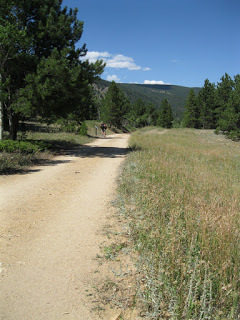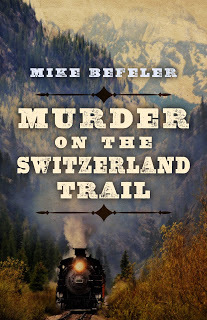Mike Befeler's Blog, page 52
October 29, 2015
Aging
Aging is part of our human predicament. At first we want to be older: to be able to stay up past ten o’clock, to get a driver’s license, to vote, to buy a drink, to rent a car.
Then suddenly our perspective changes. Whoa. I don’t want to be thirty, forty, fifty, sixty, seventy.
I recently looked back over each of my decade milestones. When I turned ten I was in fifth grade, having just suffered the indignity of being required to wear shoes to school in Honolulu. I celebrated by twentieth birthday in France in the middle of an adventure, learning another language, experiencing a different culture, exploring new ideas, starting to discover what I was about. At thirty I was immersed in a career, married with a four-year old son. Forty found me having achieved some success in business and about to leave a large company for my first foray into the world of start-ups. At fifty I was struggling through a bad work situation (about to get fired), had acquired a daughter-in-law and was soon facing an empty nest. At sixty I was a grandfather, dealing with the issues of my aging parents, settled in at work and looking forward to retiring. At seventy, I was retired, had survived a heart attack and continued to enjoy writing and giving talks.
Birthdays used to be a big deal. But when I turned sixty, my wife was in Los Angeles selling her mom’s house, so I celebrated alone, fixing a TV dinner. Just another day.
Recently I reread parts of a journal I had kept in the 1980s and early 1990s. Two things struck me. How things were different now and how things were the same.
My core being is the same as when I was younger, and I’m still grappling with the same issues: self-consciousness, fears, relationships, attitudes and deciding what I want to be when I grow up. Yet so much has changed. I’ve mellowed and don’t get as uptight as I used to. I go with the flow more now. I guess you could say that’s part of maturing.
But I still picture myself as a young person. It’s just that I’m trapped in an aging body.
I’m now more aware of the next steps, having dealt with the issues of placing my mom and stepfather in retirement then care homes and having faced the death of both parents.
My thoughts now are focused on our three-month-old grandson and our kids and other grandchildren. Every era has its advantages and disadvantages. As my stepfather used to say, “Getting old isn’t all it’s cracked up to be, but it’s better than the alternative.”
Published on October 29, 2015 05:00
October 22, 2015
Love
My thought for today. Many different forms of love exist: romantic love, love of a child, love for mankind. The one common denominator is a caring that goes beyond the self. Love involves opening the self, not restraining the loved one, and demonstrates compassion, joy and equanimity so neither the self nor the loved one is placed on a pedestal, but the relationship comes first. The duality of love demonstrates individual and shared elements; one doesn’t have to give up the self for the shared experience of love.
As parents we take pride in our children, but also need to set limits. Part of each individual’s development requires learning about both potential and limits. Tough love dictates knowing when to say, “no.” As adults we have a base of experience that the child has not yet developed. We want our children to grow, learn and mature, but boundaries are necessary. If a child doesn’t yet understand the danger of running into a street, we must provide restrictions until the child internalizes the distinction between running in the yard and running in the street. The line to walk involves giving the child room to test, explore and learn within a safety net.
The biggest challenge in romantic love is the boundary between my way and your way. In any relationship there will always be conflict. I want to watch television and you want to play bridge. The test of a strong relationship is how these conflicts are resolved. If I feel I have to “win” I’ve lost sight of the relationship. Love involves give and take and seeking a common ground for “us” not “me.”
A commitment to the relationship provides the motivation to resolve conflict. Commitment becomes the key to a lasting relationship.
Published on October 22, 2015 05:00
October 15, 2015
Research for a Mystery Novel
My first historical mystery novel, Murder on the Switzerland Trail, will be published by Five Star, part of Gale/Cengage Learning, next week. Here’s a brief preview: A Sunday excursion in the mountains above Boulder, Colorado, in 1919 leads to murder as intertwined lives play out a mystery on the Switzerland Trail railroad. Policeman Harry McBride must figure out who the murderer is before the train reaches the Boulder station on the return trip.
One of the delights in writing a historical mystery was the research. At the time I wrote the novel, I lived in Boulder, Colorado, and with a group of friends I hiked the publicly available sections of what had once been the railroad bed. This entailed visiting spots such as this part of the trail in Caribou Ranch.

And this scene near Glacier Lake.

I also read the definitive book on the history of railroad, Switzerland Trail of America, by Forest Crossen. Next, I went to the Carnegie Branch of the Boulder Library to read newspapers from 1918 and 1919. Once the librarian trained me to use the microfilm machine, I scanned through old issues of the Boulder Daily Camera to read articles about world events, local activities and advertisements. I learned that the Northern Gas and Drilling Company offered shares at only fifteen cents each, requiring only five cents down. And local color: “Fat man’s race: first, Clyde Church, second C. C. Poundstone, (the timekeeper fell asleep.)”
All in all, this was an enjoyable exercise and provided a wealth of background information for writing the novel.
One of the delights in writing a historical mystery was the research. At the time I wrote the novel, I lived in Boulder, Colorado, and with a group of friends I hiked the publicly available sections of what had once been the railroad bed. This entailed visiting spots such as this part of the trail in Caribou Ranch.

And this scene near Glacier Lake.

I also read the definitive book on the history of railroad, Switzerland Trail of America, by Forest Crossen. Next, I went to the Carnegie Branch of the Boulder Library to read newspapers from 1918 and 1919. Once the librarian trained me to use the microfilm machine, I scanned through old issues of the Boulder Daily Camera to read articles about world events, local activities and advertisements. I learned that the Northern Gas and Drilling Company offered shares at only fifteen cents each, requiring only five cents down. And local color: “Fat man’s race: first, Clyde Church, second C. C. Poundstone, (the timekeeper fell asleep.)”
All in all, this was an enjoyable exercise and provided a wealth of background information for writing the novel.

Published on October 15, 2015 05:00
October 8, 2015
Goals
What are your goals? To achieve goals one must utilize strengths and overcome weaknesses. If you can’t eliminate a weakness, team with someone who has complementary strengths, e.g., a deaf person can work with a person with good hearing.
With a goal in mind, then action plans can be put in place. An entrepreneur is someone with a single-minded goal in business. To succeed someone must have this concentration and drive. In an organization one can eliminate people and get the “right” ones or develop the people there to build a strong organization. The issue is always one of getting the right peg in the right hole or changing the shape of the peg to fit the hole.
As a writer, I set goals, which has allowed me to complete ten published novels with more in the queue. I think it’s always worthwhile to ask what do I want to accomplish?
And as an aside, I still wonder what I will be when I grow up.
Published on October 08, 2015 05:00
October 1, 2015
Strengths and Weaknesses
Some thoughts I jotted down:
Nature - what we are
Potential - what we can become
Strengths - key capabilities that can be enhanced
Weaknesses - what we must struggle with
Weaknesses can either be overcome or accepted. We must understand and deal with what can and can’t be changed. Example: a blind person shouldn’t keep trying to see. What is necessary is to accept the blindness and adjust accordingly. But a shy person can become more outgoing, i.e., can adapt. Issue: When should we accept the way we are versus doing something about it?
How do we deal with our own strengths and weaknesses? Before retiring into writing when I held a day job, I set quarterly objectives with my employees, and then at the end of the quarter they did a self-assessment, and then I evaluated their performance. At the end of the fiscal year we conducted an annual performance review, and I determined merit increases based on results. What I found interesting was that the forms used and the inherent process focused on improving weaknesses—what deficiencies and flaws needed to be overcome. This is important because we all can improve. In writing critique groups most of the feedback relates to things that don’t make sense, consistency errors and poorly worded sections. For a novel to be readable and marketable, these things need to be fixed.
If I’m going to be a better husband, father, grandfather, pickleball player, writer what do I need to improve?
There is another side. Strengths. What are the things we do well that we should keep emphasizing and do even better?
I think in terms of a football analogy. If I’m a coach, I may have a quarterback who is a good passer but a poor blocker. Rather than focusing on improving his blocking skills, it is more productive to emphasize enhancing his passing skills. Other positions require good blocking, but the team will benefit if the quarterback develops from a good to an excellent passer. Focus on strengths and improve them further.
So it gets down to what’s required. To be a better writer, I need to focus on my weaknesses because I have a lot of development to do. In pickleball my weakness is lack of mobility because of my arthritic joints. It doesn't pay for me to work on mobility. I just need to accept it. What I can do is focus on my strengths: fast hands and good shots and continue to improve these.
So I need to keep a balance. Overcome the weaknesses that prevent me from realizing my goals and focus on the strengths that will allow me to achieve my goals.
Published on October 01, 2015 05:00
September 24, 2015
Responsibility
Take responsibility for the actions you can control. When I had a day job before I retired into writing, I sought responsible employees who would take charge of their area and make things happen. When a problem occurs, valued people step in to find a solution. This contrasts to the person who says, “This isn’t mine, it’s someone else’s.” A responsible person will say, “This isn’t my area, but I’ll help you get to the right person.”
I believe we are all responsible for making the world a better place in our sphere of influence. This contrasts with the view that when a problem occurs some people react by saying, “This is God’s will.” If they don’t act, they are abdicating responsibility. Sure bad things happen, but that isn’t a reason to throw up our hands and give up.
Take responsibility for what you can influence and change. Then you can leave the rest to God’s will.
Published on September 24, 2015 05:00
September 17, 2015
Respond Versus React
When faced with the need to take action we can deal with it one of two ways: First, we can react. This is the knee-jerk, after the fact, go fix it because we let it get broken. When Hurricane Katrina hit the Gulf Coast, there were all kinds of reactions, but not a planned response.
Second, response is dealing with the situation in a planned, creative way. People anticipate and are prepared so that when action is required, resources are mobilized and ready. An emergency can then be treated as an expected event, not a surprise. A trained medical response team, responds rather than reacts.
Published on September 17, 2015 05:00
September 10, 2015
Consciousness and Awareness
We can choose a goal of consciousness--being aware of the present rather than losing ourselves in the past, future or worse, just being asleep. This means waking up to what is going on around us and not sleeping on our feet.
How often do we really notice things around us? I always find it interesting that when I buy a new car, I suddenly notice the same brand everywhere. When my wife was pregnant, I was amazed at all the pregnant women I saw. But other times I don’t make the connection. It takes that extra, motivated awareness to recognize common occurrences around us.
After a hard day of writing, I feel the pull to plop down in front of the television set and veg out. Drugs and alcohol provide an escape for some people. But being aware and conscious of the present is the better path. Taking a walk in a park or along the beach helps me focus on the present by being conscious of my surroundings and aware of all around me.
But being immersed in problems poses a more difficult situation. Part of me wants to escape, get out of there, go take a walk again, when what is being asked of me is to be conscious and aware of the situation and deal with it.
I’ve learned over the years to hang in there to get things resolved as much as I can in my sphere of influence. I try to act on things I have control over. If I can’t impact the situation, then I need to detach from the outcome. But this isn’t easy. Mentally I know this may be the needed attitude, but still I get frustrated and want to force the results I want.
Published on September 10, 2015 05:00
September 3, 2015
Conflicting Rights
Most disagreements center around conflicting rights. My right to play the drums versus your right for peace and quiet. The right to smoke versus the right for a smoke-free environment. The right to view pornography versus the right to protect our children. The right to take your dog for a walk versus the right to have a clean poop-free trail. The right to have a freeway built versus the right to keep a house that is in the planned path. The right of a woman to chose abortion versus the right to protect the fetus. The right to protect a news source versus the right to track down a criminal.
In Hawaii, beach areas are all public property and home owners’ property lines are delineated by where the vegetation grows. Consequently, some home owners have been growing vegetation over the sand to expand their property line and keep the public away. The home owners want their privacy, and the beach-goers want access.
These conflicts get down to my right versus your right or the right I believe I should have versus the right you believe you should have.
So much of tension in society is the result of conflicting rights. The rights of the Israelis versus the rights of the Palestinians to occupy certain territory; the right to protect religious expression versus the right to enforce religious beliefs.
These are the problems that are difficult to settle. Over years people become ensconced in their positions and beliefs. Then it becomes a personal conflict, a vendetta, my way of life versus yours.
With no easy solution the conflict escalates.
Much centers around possessions. People want to own land which leads to my property rights versus yours. But ultimately we are custodians not owners of land. It was already here.
It’s only if we can take a wider view that issues of conflicting rights can be solved. Moving beyond my right versus your right to our rights, requires finding a solutions that embraces the broader interest of both parties. It’s a shame that so often there has to be an external enemy to get people to come together. Maybe some day we can learn that the real external enemy is our inability to see ourselves as one.
Published on September 03, 2015 05:00
August 27, 2015
Using My Left Hand
Two months ago when we moved from Colorado to California, I suffered a hand infection (cellulitis) and for a week kept my right hand elevated while IV antibiotics were administrated. During this time I didn’t do any writing, but I checked email and sent messages. I suddenly learned to do things left handed. As an example I operated my computer mouse with my left hand. At first this felt unnatural, and I couldn’t keep the cursor in the correct spot, but with practice I became almost as proficient as with my right hand. Now that I’m fully recovered, I’ve continued to use the mouse left handed. Who says older people can’t change?
Published on August 27, 2015 05:00



